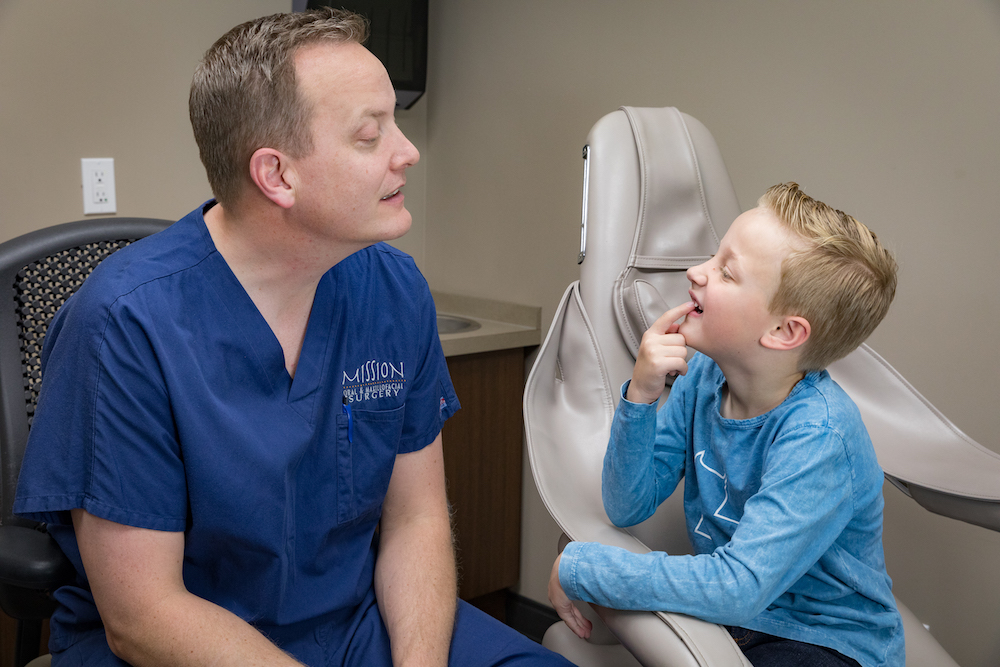Impacted Canines: Fixing impacted teeth in Calgary.
Are your canine teeth growing abnormally?
Do you have red, swollen gums around the canine area? Do you feel pain when chewing or biting?
You may have impacted canines.
Book a consultation
*Required Field
Less fear, more comfort
A promise from Mission Oral Surgery team
Our top-most priority is you – your health, safety, and comfort. From the initial diagnosis to after-surgery care, we’ll walk you through every step to ensure you’re comfortable.
Having impacted canines means that one or both of your canine teeth are stuck in the alveolar bone – the bone ridge that houses tooth sockets – preventing them from erupting into function.
Since an impacted tooth can affect the aesthetics and functioning of other teeth, it’s important to consult our oral surgeons in Calgary as soon as you notice any signs.
Here, you will find comfort when you need it most.
Trusted by:




Want more info or would like to meet the doctors first?
What can cause impacted teeth?
Impacted canines overview
Several factors can contribute to the development of impacted teeth.
These include:
- Extra teeth: Extra teeth cause congestion on the dental arch, leaving limited room for your canines to erupt.
- Poor front teeth alignment: Misaligned front teeth cause overcrowding, which leaves your canines with insufficient space to erupt into function.
read more...
- Abnormal growth: Though rare, abnormal growths in your gum’s soft tissue may restrict proper canine eruption and eventually cause impaction.
- Inheritance: Impacted teeth can be a genetic condition.
- Premature loss or removal of baby teeth
- A mismatch in the shape and size of your teeth
- Poor prior orthodontic treatment
Individuals between the age of 17 and 22 are at the highest risk of impacted teeth because this is the period when wisdom teeth develop.

What are the symptoms of impacted teeth?
In most cases, you may not experience any symptoms. However, in some people, impacted teeth can cause:
- Red, swollen, and bleeding gums
- Jaw pain
- Difficulty opening your mouth
- Bad breath
- Pain when chewing or biting
- An unpleasant taste in your mouth
These symptoms may be recurring over a few weeks or even months.
Why you need treatment for impacted canines
If untreated, the impacted tooth may keep growing behind other teeth. As a result, it can cause damage to adjacent teeth as it attempts to force its way through. An impacted canine may also eat away part of the adjacent tooth’s root, which may cause other oral complications.
Additionally, wounds on the gums caused by impacted canines can make it difficult for you to clean your mouth. This may lead to a range of periodontal diseases.
Get safe, comfortable treatment for impacted teeth in Calgary
To preserve oral health and aesthetics, oral surgery may be required to correct your impacted teeth. Typically, our surgical procedure includes dental sedation to make the operation as comfortable and pain-free as possible.
After exposure of an impacted tooth
Do not disturb the wound. If surgical packing was placed, leave it alone. The packing helps to keep the tooth exposed. If it gets dislodged or falls out, do not get alarmed but please contact our office for instructions.
Is bleeding normal?
How can I manage or reduce the swelling?
Apply ice directly to your face in 20-minute intervals for the first 24-48 hours. You may begin applying heat 4-5 days post surgery to help relax the muscles.
What can I do to ease the pain?
What can I eat after the procedure?
Can I rinse or brush my teeth after surgery?
Can I exercise after surgery?
Book your appointment now
*Required Field